Launch of IMF World Economic Outlook 2023
2023-05-22 IMIOn the morning of April 20th, the Launch of IMF World Economic Outlook 2023 was held in Beijing, which is organized by the International Monetary Fund Representative Office in China, the International Monetary Institute of Renmin University of China (IMI), and co-organized by the China International Finance Association and the Bank of China Research Institute.
Experts and scholars from financial management departments, research institutions, and financial institutions from all around the world attended the conference and gave speeches including Lin Shangli, President of Renmin University of China, Steven Barnett, Chief Resident Representative of the IMF China, Prachi Mishra, Director of the IMF Research Department's Systemic Issues Division, Ashique Habib, an economist with the IMF Research Department, Yu Yongding, a member of the Chinese Academy of Social Sciences, Zhang Zhixiang, former Director General of the International Department of the People's Bank of China and former Executive Director of IMF for China, Chen Weidong, Dean of the Bank of China Research Institute, and Tu Yonghong, Deputy Director of IMI and Dean of the Yangtze River Economic Belt Research Institute, and more than ten media outlets participated in the coverage. The conference was chaired by Zhuang Yumin, Dean of the School of Finance of Renmin University of China.
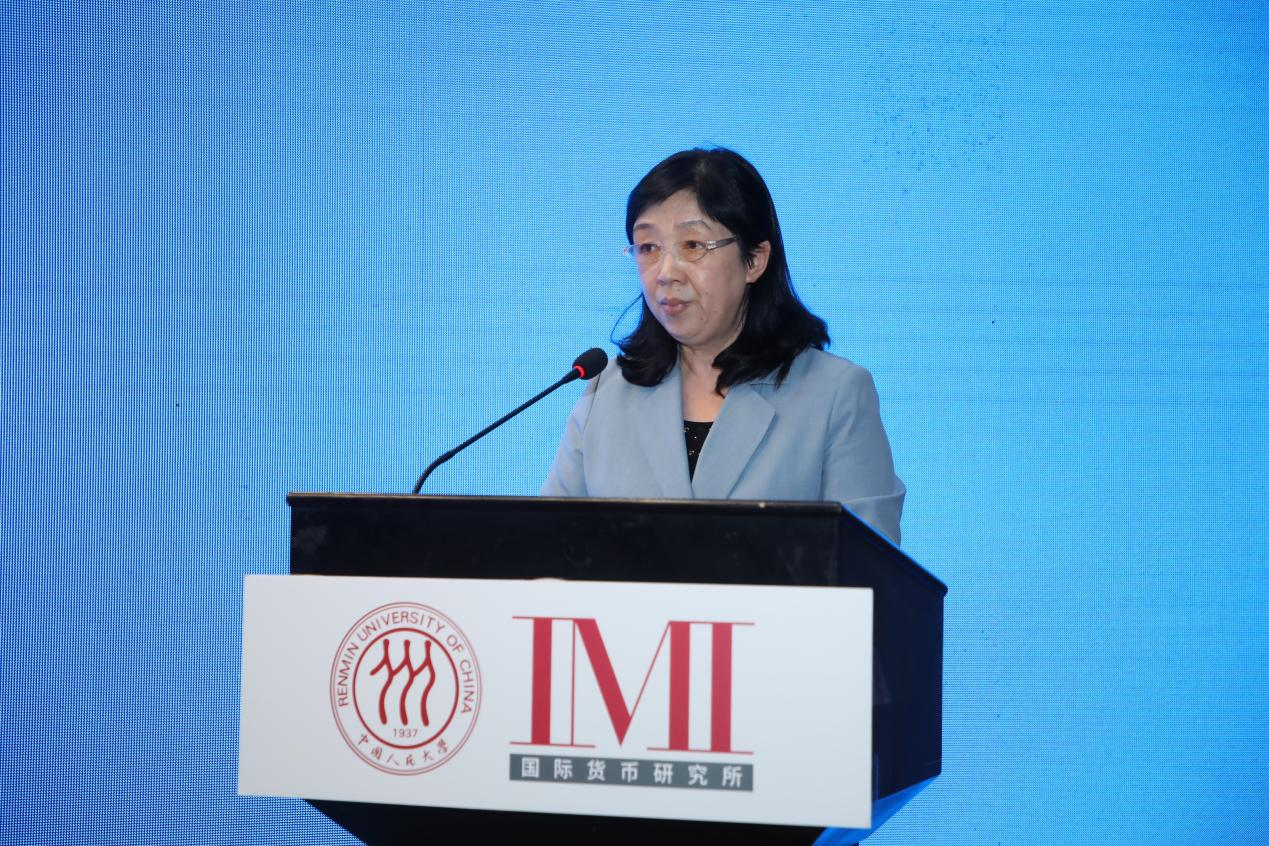
Professor Zhuang Yumin introduced the background of the conference and the basic information of the "IMF World Economic Outlook 2023”. She pointed out that the report focused on topics such as inflation, public debt, geopolitical economic fragmentation, and foreign direct investment, to predict the development prospects of the world economy and different regions and economies around the world.
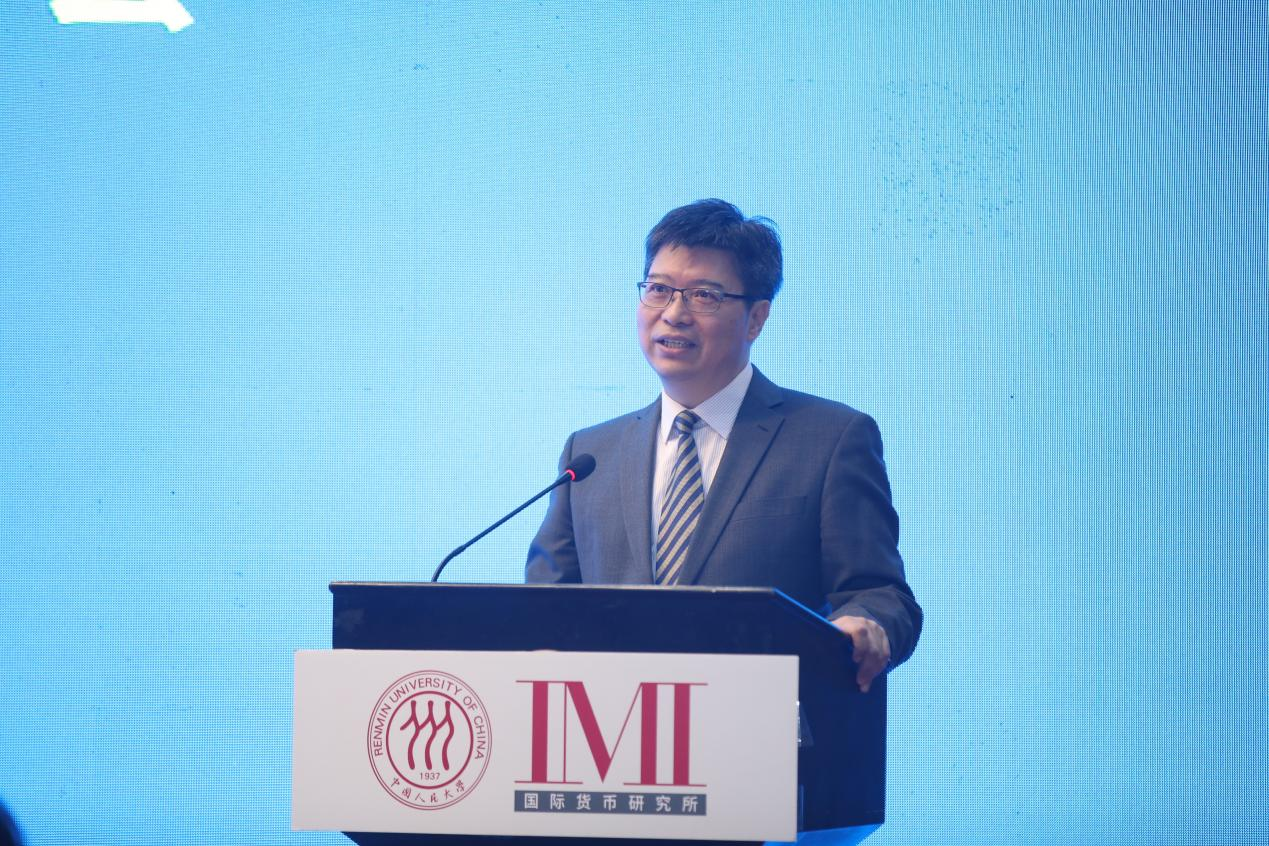
Professor Lin Shangli mentioned in his opening remarks that the report of the 20th National Congress of the Communist Party of China has pointed out the direction and provided the fundamental principle for promoting high-quality development and accelerating the construction of a new development pattern. High-quality development is the primary task of building a socialist modernization country in an all-round way, an important content of realizing the great rejuvenation of the Chinese nation, and also the overall grip to achieve the two centenary goals. We must adhere to a high- standard opening up, improve the macroeconomic governance system, continue to implement a prudent and well-targeted monetary policy, strengthen the coordination between fiscal and monetary policies, and enhance the fundamental role of consumption in economic development and the key role of investment in optimizing the supply structure. Against this backdrop, the release of the IMF World Economic Outlook 2023 is highly relevant.
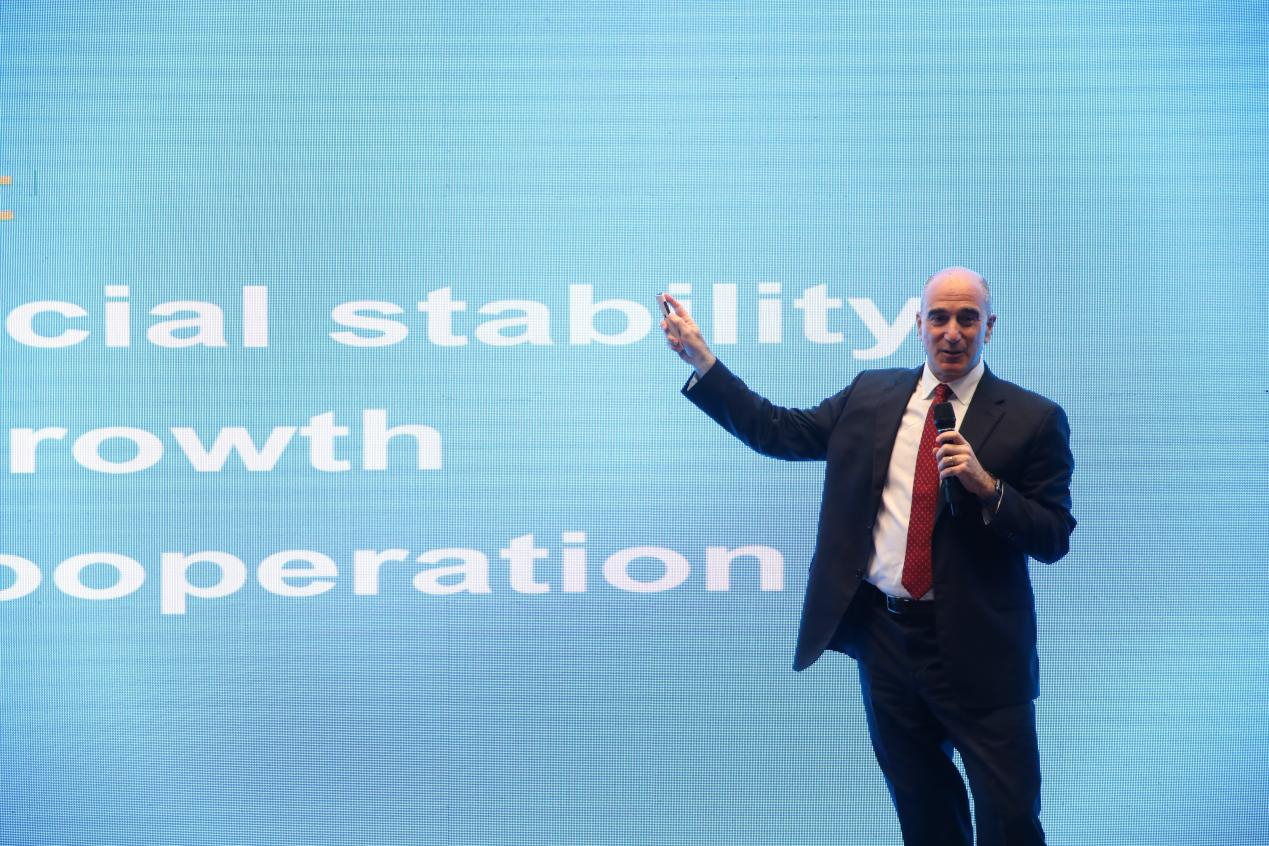
Mr. Steven Barnett delivered the keynote speech. He put forward that the IMF's World Economic Outlook shows that global economic growth is expected to slow down, from 3.4% last year to 2.8% this year, and is expected to recover to 3.0% next year. One percentage point of global economic growth comes from China, accounting for one-third of the global economic growth. The report expects inflation to return to pre-pandemic levels as countries tighten their money supply to effectively curb inflation. The report believes that China will maintain a moderate level of inflation, fluctuating around 2.2%. Looking at future inflation expectations from bond prices, the US inflation expectation for the next 5 to 10 years is about 2.5%, and the market believes that the current high inflation is temporary. In terms of medium-term growth, the pandemic has had a serious scarring effect. China's economic growth is strong, and for every 1% increase in its growth rate, other economies may achieve 0.3% growth, which is known as the spillover effect.
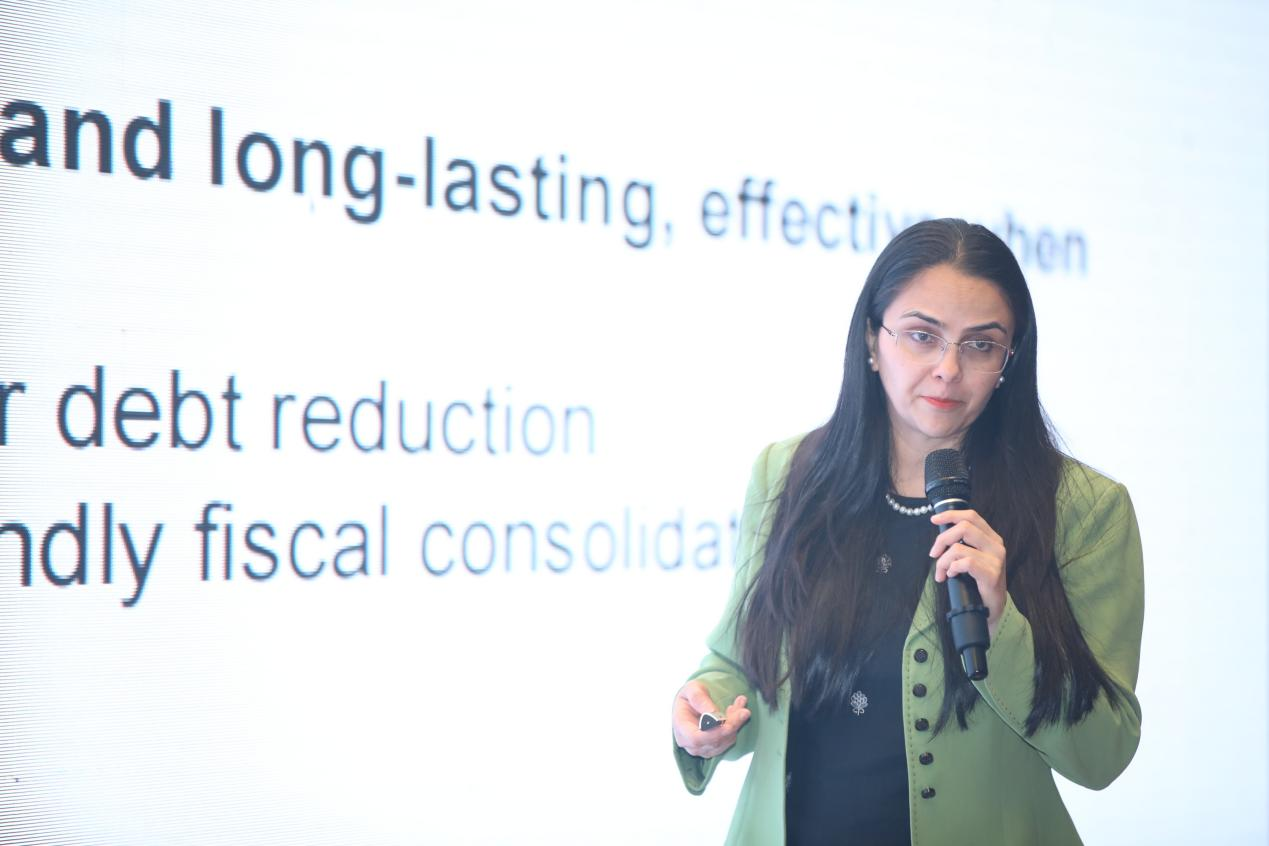
Ms. Prachi Mishra was the second speaker to deliver a keynote speech, in which she explored two measures that helped to lower the public debt ratio: fiscal consolidation and debt restructuring. To improve the effectiveness of fiscal consolidation, there are three conditions: first, it should be carried out during a period of economic growth or recovery and when global uncertainty is low; second, the initial peak of debt is the most critical moment; and third, fiscal consolidation should be focused more on expenditure than revenue. Regarding debt restructuring, she highlighted three points: first, debt reduction can be achieved through debt write-offs, adjusting coupon rates, or extending the maturity, if the creditors agree; second, debt restructuring needs to be coordinated with a series of other works; third, regardless of the method used, it must be sufficiently deep and coordinated with other policies.
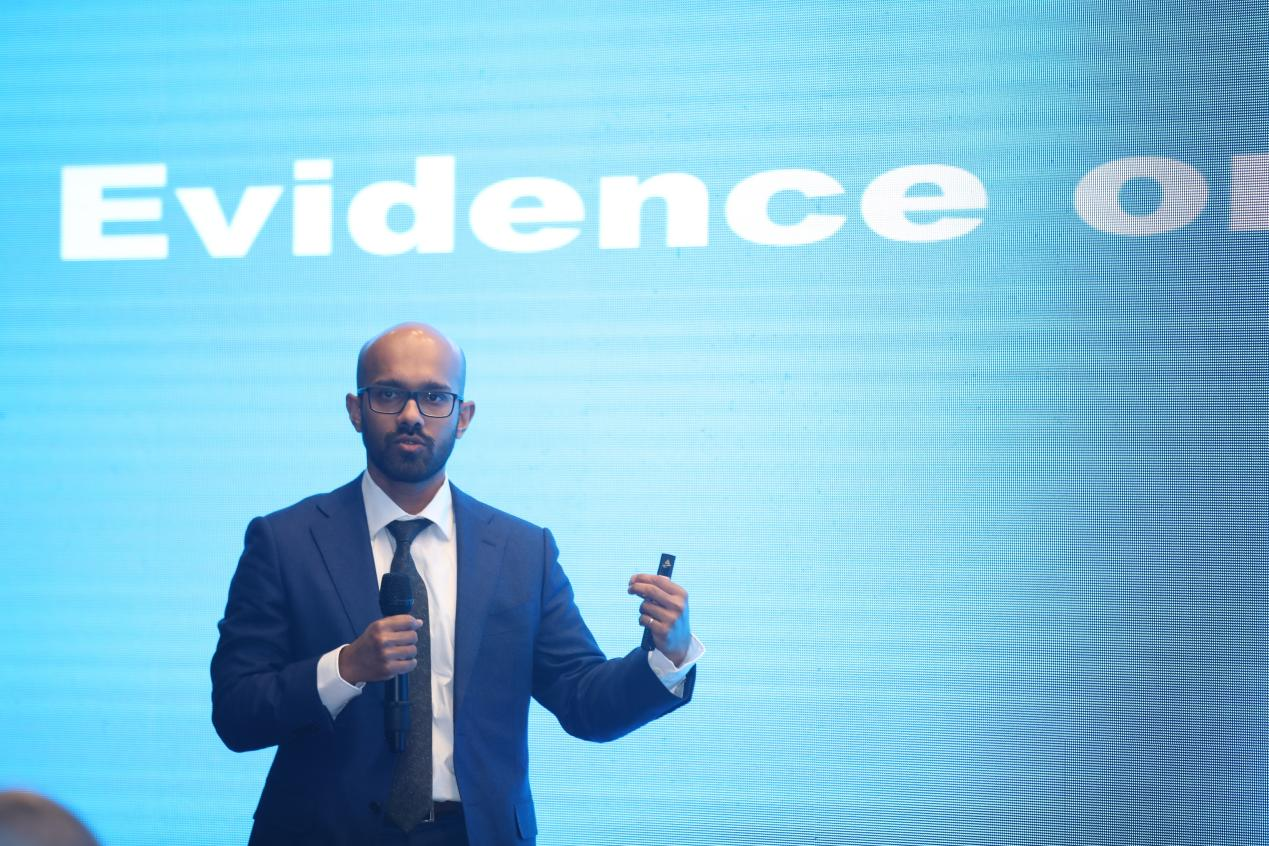
Mr. Ashique Habib was the third keynote speaker. He believes that the fragmentation of FDI may bring higher costs and risks to the global economy. Recent evidence shows that FDI has shifted between countries, especially in strategic areas such as semiconductors. Current geopolitical relations have had an impact on FDI flows, especially in emerging markets and strategic sectors. In this environment, all countries are vulnerable, with many emerging and developing economies being particularly so. Geopolitical fragmentation may bring higher economic costs, and even non-aligned countries may pay a high price due to the weakening of global economic activity and rising uncertainties. Therefore, he suggests establishing a strong mechanism to maintain global integration and prevent FDI fragmentation. Multilateral dialogue should be further promoted; international consultations should be conducted; the potential impact and spillover effects of geopolitical fragmentation should be explored; and policies should be adjusted and optimized. At the same time, private sector construction should be strengthened to reduce the vulnerability of foreign investment relocation. In addition, with the changes in global investment flows, greater efforts and institutional support will be needed to attract investment.

Professor Yu Yongding delivered a speech online. He pointed out that insufficient demand is currently the most prominent problem in China. In addition, the slowdown of China's economy is the result of various unfavorable factors. Compared with other major countries in the world, China's corporate sector does rely too much on debt financing, especially bank loans. However, the current Chinese banking system is still relatively sound, and the non-performing loan ratio is not high. China’s debt-to-GDP ratio is relatively low. Even in term of local debt, China's fiscal situation is clearly much better than that of most developed countries. The sustainability of government finances depends on the growth rate of GDP and the level of interest rates. The current debt-to-GDP ratio is not a concern. As long as stable economic growth and a relatively low interest rate can be maintained, there will be no debt crisis. However, currently there are problems in both the structure and quantity of China's government debt. In 2023, China should do the following things: carry out the reform plan of the third plenary session of the 18th CPC Central Committee to boost market confidence, implement expansionary macroeconomic policies, boost the economy with investments in infrastructure, technological transformation and innovation, and the reshaping of industrial chains, and drive consumption growth to form a virtuous cycle of economic development.
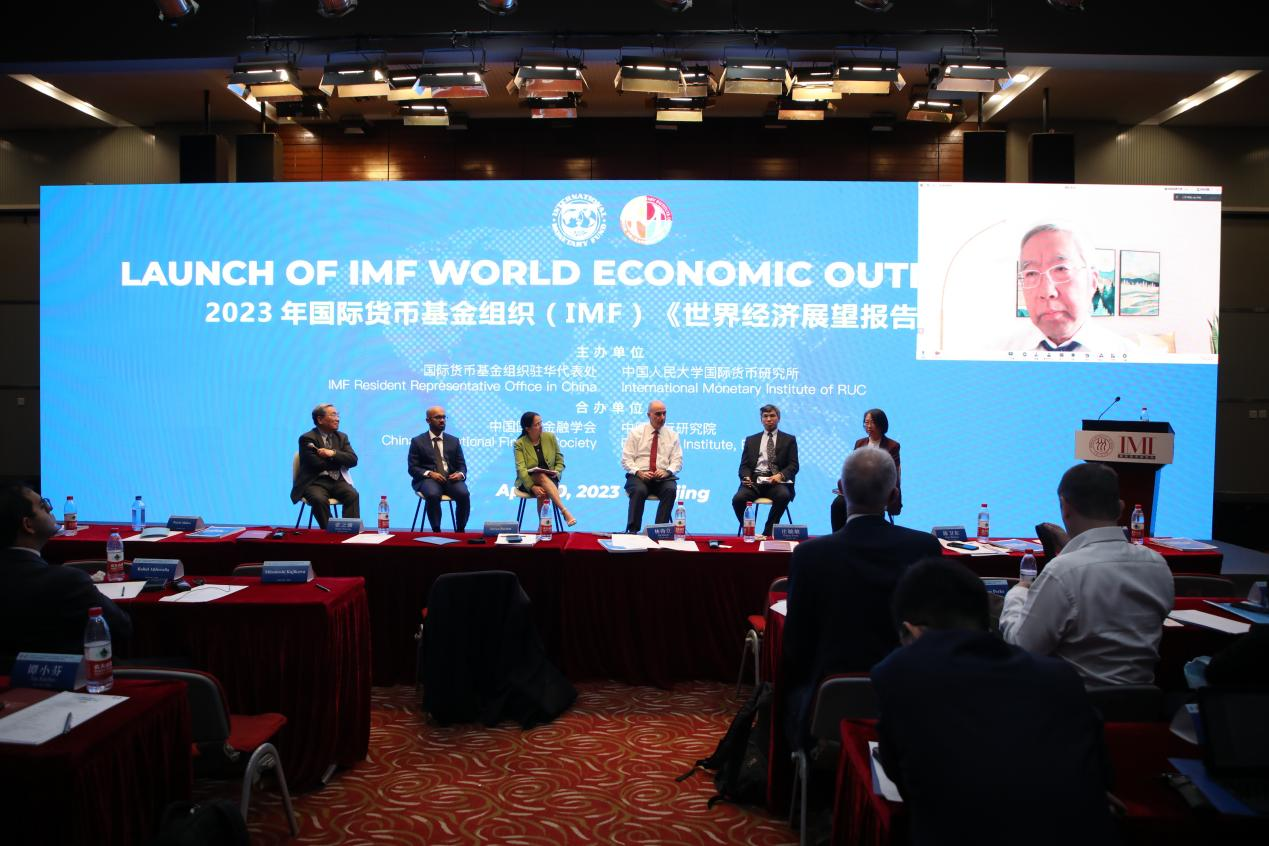
During the discussion session, the guests explored the future of China's economy, government debt, the coordination of monetary and fiscal policies, and the spillover effects of policies of different countries.
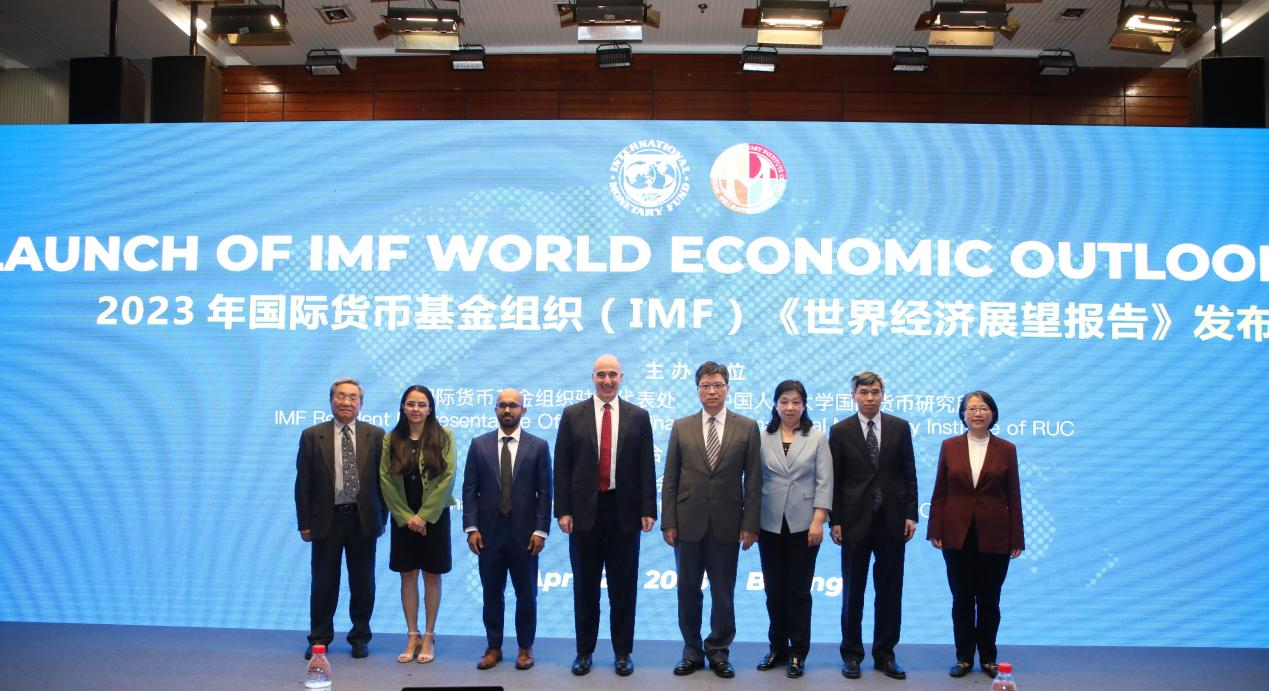
Translated by Zhou Yuping and Yin Duolan
